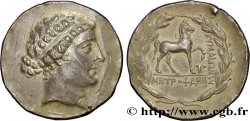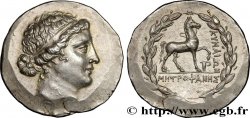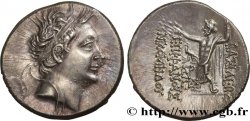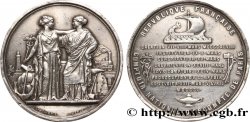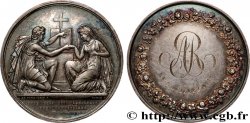Live auction - bgr_393738 - BRUTTIUM - LOCRI Nomos, statère ou didrachme
You must signin and be an approved bidder to bid, LOGIN TO BID. Accounts are subject to approval and the approval process takes place within 48 hours. Do not wait until the day a sale closes to register. Clicking on "BID" constitutes acceptance of the terms of use of cgb.fr private live auctions.
Bids must be placed in whole Euro amounts only. The sale will start closing at the time stated on the item description; any bids received at the site after the closing time will not be executed. Transmission times may vary and bids could be rejected if you wait until the last second. For further information check the Live auction FAQ
All winning bids are subject to a 18% buyer’s fee.
All winning bids are subject to a 18% buyer’s fee.
| Estimate : | 550 € |
| Price : | 530 € |
| Maximum bid : | 671 € |
| End of the sale : | 28 June 2016 14:02:40 |
| bidders : | 3 bidders |
Type : Nomos, statère ou didrachme
Date: c. 334-330 AC.
Mint name / Town : Locres, Bruttium
Metal : silver
Diameter : 20,5 mm
Orientation dies : 6 h.
Weight : 7,29 g.
Rarity : R3
Coments on the condition:
Exemplaire sur un flan ovale bien centré des deux côtés. Belle tête de Zeus. Usure régulière, en particulier sur le corps de l’aigle. Patine de collection ancienne avec des reflets mordorés
Catalogue references :
Obverse
Obverse description : Tête laurée de Zeus à droite.
Obverse legend : LOKR[ON]
Reverse
Reverse description : Aigle à gauche, les ailes déployées attaquant un lièvre à gauche, derrière, monogramme.
Commentary
Trace de surfrappe au revers sur l’aile de l’aigle.
Trace of over-stamping on the reverse of the eagle's wing
Trace of over-stamping on the reverse of the eagle's wing







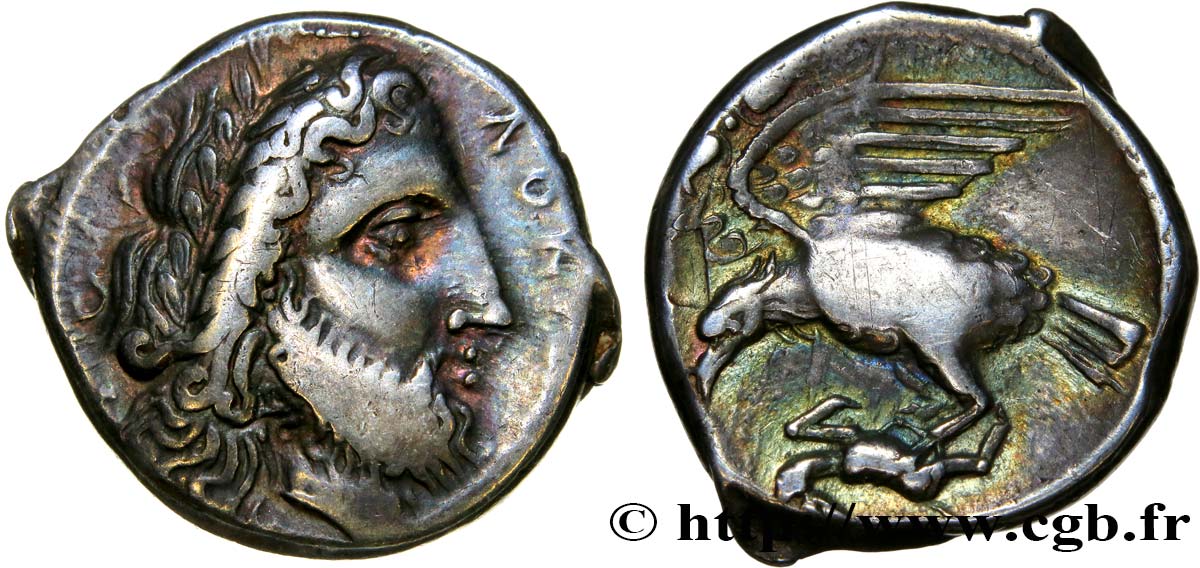
 Report a mistake
Report a mistake Print the page
Print the page Share my selection
Share my selection Ask a question
Ask a question Consign / sell
Consign / sell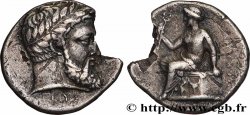
 Full data
Full data
